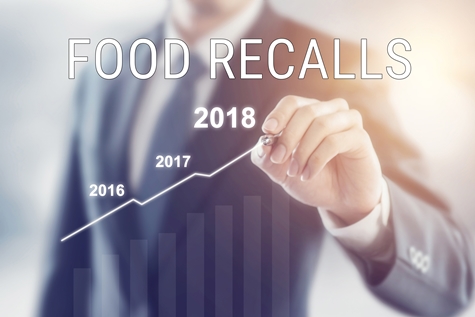Handle With Care: The Silver Lining for Your Brand in a Food Product Recall
By Steve Hather
The thought of a product recall can scare even the most seasoned executives in the food industry. Examples of companies that have incidents and product recalls escalating into a crisis litter social media. Some lose short term sales but bounce back, some take ages to recover. Some don’t make it back at all: a study of corporate crises in Australia shows that 25% of companies that have a crisis do not survive.
It’s little wonder that food recalls are seen as actions to be avoided at all costs. If you have to have one, tell as few people as possible. Right? It is precisely this thinking that is the leading cause of escalation into a brand crisis!

Moment of Truth
A study of 1,000 consumers in the United States conducted by The Relational Capital Group in 2010 showed that 91% understood that even the best companies would make a mistake that would lead to a recall. Ninety-three per cent of consumers viewed a product recall as a “moment of truth” for a consumer brand, where the company got to demonstrate its true intentions. Eight-seven per cent said they would become even more loyal to a brand if the company handled a recall “honourably and responsibly.”
Managing the technical side of an incident or a food product recall seems quite straightforward: Identify a problem, conduct an investigation, analyse the cause, locate the product, retrieve the product, replace the product, move on. If only it were that easy!
While there are certainly improvements most companies can make in these critical areas, it is generally not these aspects of incident management that cause escalation to a brand crisis – although if you make a mess of these it can certainly cause escalation! It is not the incident itself but the way the company is managing the incident – and is seen to be managing the incident—that will lead to a brand crisis.
The Key Elements of Trust
Product recalls that have escalated into a brand crisis tend to have one thing in common: the company has broken that most valuable, but perhaps most fragile of assets – consumer trust, or customer trust in the case of B2B companies. Safety, honesty and transparency are all key elements of that trust.
A food product recall can be an expression of all those brand attributes – if managed well. Companies that manage incidents and food recalls well, and avoid brand crises, have both strong technical capability but also understand and address the concerns and expectations of key stakeholders. Their communications reflect action and competence but also recognition that incidents are fundamentally human events. The corny old saying “consumers don’t care how much you know, until they know how much you care” has a strong element of truth in crisis prevention!
About the Author
Steve Hather is currently Director and Principal Consultant for The Recall Institute, a specialist product risk, product recall, and crisis management training and consulting company. He has helped some of the world’s best-known food and consumer goods companies, as well as small and medium businesses. manage incidents and product recalls and protect their brands.
Steve has trained hundreds of senior executives in incident management, product recall and crisis management, and he was a member of the international working group that developed the new International and now Australian Standard for Product Recall – AS/ISO 10393.




